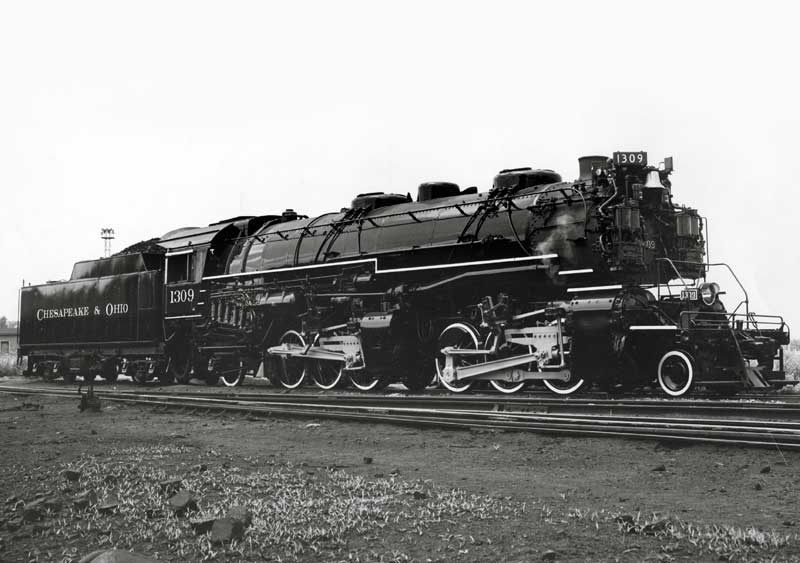The
black plume of the smokestack, the chuf-chuf-chuf-chuf of the engine as it pulls
the cars along with a clickety clack – no, you haven’t gone back in time, but
the Western Maryland Scenic Railroad has!
The Western Maryland Scenic Railroad is celebrating its thirtieth year
of preserving Allegany County’s rich rail history, while at the same time providing
a tourist destination for visitors the world over.
The Western
Maryland Scenic Railroad is an important tourism staple for Allegany
County. It runs from Cumberland in the
mountain valley up to Frostburg, crossing 19 miles of track and gaining 1300
feet in altitude over a leisurely hour-long ride as it travels through the
beautiful forests of the Appalachian Mountains. Once in Frostburg, they stay in town for a 75
minute layover to enjoy the town before returning to Cumberland. While in Frostburg, passengers can explore
the depot and carriage museum, or take the trolley service up to Frostburg’s
main street for food and shopping.
Of
course, the ride is more than just the train itself – the normal journey comes equipped
with a chef and on train kitchen, serving fresh food to the dining cars, for
those who bought non-coach tickets. In
addition to this, the Scenic Railroad often runs special events and trips to
draw more customers. Robert Flanigan,
Mayor of Frostburg and Vice President of the Western Maryland Scenic Railroad
Council describes the events as “Disney in Motion.”
Family-friendly trips like the Family
Pizza Train and Frostburg Explorer are exciting, but the real draws largely
involve alcohol. The Scenic Railroad
runs craft beer specials, wine tastings, and ever-exciting Mountain
Moonshine. The three specials serve
dinner alongside drinks that were all brewed locally. Another big hit is the Murder Mystery train,
where actors play out an interactive and partially improvised comedy, with
several different stories available over the course of the year.
For the train enthusiasts, however,
there are even more options available.
Caboose rentals and riding in the engine cab are exciting offerings, but
the real adventure is the “Hands on the Throttle” service, where passengers get
to – with training and the supervision of an experienced engineer – drive the
train for a leg of the journey.
Though the scenic railroad is
currently running a pair of diesel locomotives, it also has a pair of Steam Locomotives. The one they usually run is undergoing
regular federal inspection currently, so the Western Maryland Scenic Railroad
acquired a “new” engine, divested to them from the Baltimore and Ohio Railroad
Museum. The engine is a C&O #1309 H6
Mallet Steam Locomotive, previously used to pull coal before being retired in
1956 – it has never pulled a passenger before.
It weighs 333 tons when fully loaded with water and fuel, and uses two
engines to process the steam into locomotion instead of just one, giving it
increased efficiency at low speeds. The
#1309 was the last one to be build in Edistone, PA, by the Baldwin Locomotive
Works in 1949.
The
stop in Frostburg marks the Western Maryland Scenic Railroad as somewhat unique
in the greater world of scenic railroads – most do not actually go
anywhere. Mayor Flanigan compared it to when,
in 2016, rail damage meant the train had to create a new pavilion to stop at
partway up the mountain instead of making it all the way to Frostburg. “We still ran 26 thousand people that year, most
of which didn’t realize the ride wasn’t supposed to end there!” Most of these trains just take passengers to
a pleasant field somewhere.
The Frostburg
stop has more to offer as well: the turntable. Most scenic railroads simply use switch tracks
to move the train to the other end of the cars, but the engine itself is still
facing the way it was before, meaning it has to go backwards down the
mountain. However, the Frostburg stop
comes with an authentic turntable sourced from Elkins, West Virginia, and its
always a hit for tourists to stop and watch the engine get turned around.
Unfortunately,
many in Frostburg do not consider the scenic railroad very often – some claim
it does not do much for the town, others thought it closed, and more do not
even know it exists. According to Mayor
Flannigan: “Our biggest nemesis is locals who don’t know what we do, who write
the newspapers and complain.”
Despite
its negative (or nonexistent) view in local’s eyes, the train provides a lot to
the town – tourists are a great source of economic stimulus for a town. Mayor Flanigan said it well with “Who rides the
Scenic Railroad? Not locals!” The typical exchange rate between the money a
tourist industry makes itself and its financial contribution to the town itself
is about two and a half times as much, as the tourists they pull in stay in
hotels and buy from local stores – not to mention the business the Scenic
Railroad gives directly with paychecks to workers and paying for food and drink. In 2017 the railroad made 1.86 million
dollars – which equates to over four and a half million dollars in estimated
revenue for the city.
In
addition, people who find out about Frostburg via the scenic railroad are often
eager to come back. Frostburg is a small
town – not a lot of reason to visit a city like this otherwise – and the
scenery is breathtaking enough to draw returning visitors. Mayor Flanigan knows of one family from Delaware
who sent all three of their children through Frostburg State University after
visiting on the Scenic Railroad.
The
scenic railroad even brings in money from all over the world – Mayor Flannigan
remembers visitors from all over Europe, the arabian peninsula, and
further. “When the chef has trouble
taking an order because he doesn’t speak Indian? That sounds like a problem you want to have.” Currently, the Western Maryland Scenic
Railroad is liked by over 46 different countries on Facebook, and has a rating
of 4.5/5 stars.
Here is the Western Maryland Scenic Railroad on the web.
And here is the whole Maryland Railroad Museum Guide from the American Rails Website.


Sidebar: History of the Western Maryland Scenic Railroad
The Western Maryland Scenic Railroad holds a lot of
history in the Frostburg/Cumberland community. The railroad is known as a
heritage railroad that dates back to 1853 and is the last remaining building in
Cumberland’s role as a major railroad center. During the 19th
century Cumberland was known as one of the East Coast’s major transportation gateways.
Cumberland had many transportation routes that either began or ended in Cumberland
including the National Road, the Chesapeake & Ohio Canal and the Baltimore
& Ohio Railroad.
The Western Maryland Railroad was created to compete with
the success of the B&O Railroad. The state of Maryland wanted more money
from the Cumberland to Baltimore route, so they made the railroad run north and
west from Baltimore along the Pennsylvania border. The first time, in 1899,
wasn’t successful but in 1902 the railroad was bought by the Gould railroad
family. This led to the route from Baltimore finally connecting to Cumberland
in 1906.
The railroad was eventually bought by its rival, the
B&O Railroad, in the late 1900s and was shut down in the 1970s due to
people riding less. The railroad didn’t reopen until more than a decade later
in 1988. Since then the railroad only makes a daily 16-mile trip from
Cumberland to Frostburg. The station is also open and is used as the
headquarters for the Canal Place Preservation Authority and the railroad
itself.
The
Scenic Railroad continues to progress in the return-to-service restoration of
former Chesapeake & Ohio train No. 1309. The Baldwin Locomotive Works built
no. 1309 in September 1949 as its last commercially built steam locomotive for
use by a railroad in the United States. It had previously been preserved and
displayed at the B&O Museum of Baltimore since 1972. Ironically, the
Western Maryland Scenic Railroad has many ties with the B&O railroad.
The railroad has a standard 4ft 8.5in. track gauge and
uses both steam and diesel locomotives. The railroad also features two
ex-Conrail GP30 engines. The engines are used as helper engines for the steam
locomotive and as power for excursions during special events. In addition, the
railroad also has a 60-ton Plymouth Switcher locomotive that’s used to switch
the train cars around. The route follows the former Western Maryland Railroad’s
right-of-way, then joins the old Cumberland & Pennsylvania Railroad. It travels
through a breach in the Allegheny Mountains over an iron truss bridge around
Helm Stetter’s Horseshoe Curve and through the Brush Tunnel under Piney
Mountain.
The trip is 3 hours. 1 hour up to Frostburg, a 1-hour
layover in Frostburg and an hour back to Cumberland. During the layover
passengers can visit shops and restaurants in Frostburg. Other than the layover
there are many activities offered on board the train as well. Many of the
unique excursions include; The Spring Blossom Special, Murder Mystery, the
Craft Beer Train series and a Hand on the Throttle Experience. During the ride
passengers get to witness beautiful mountain scenery.
The Western Maryland Railroad has a big impact in Western
Maryland and will remain as an exciting attraction for locals and visitors. It
offers a refreshing experience and gives everyone the chance to gain a little
more knowledge of Western Maryland and its beautiful mountains. The railroad
has made a lot of progression over the years and can only wait to see what the
future holds for his historic piece of Cumberland/Frostburg.
This site gives a brief
description of the route the Western Maryland Scenic Railroad takes during its
round-trip. It also has some information on how to contact the train station
and some excursions included during some rides.
This is the official
website for the WMSR. It has all of the information about the railroad
including ticket information, upcoming events, a schedule for the year and some
background information.
This site is from the
National Park Service and gives a more in depth look at the railroad’s history
and how it became what it is today. The site provides a lot of information on
the roots of the railroad starting with why it was created dating all the way
back to the 19th century.
No comments:
Post a Comment